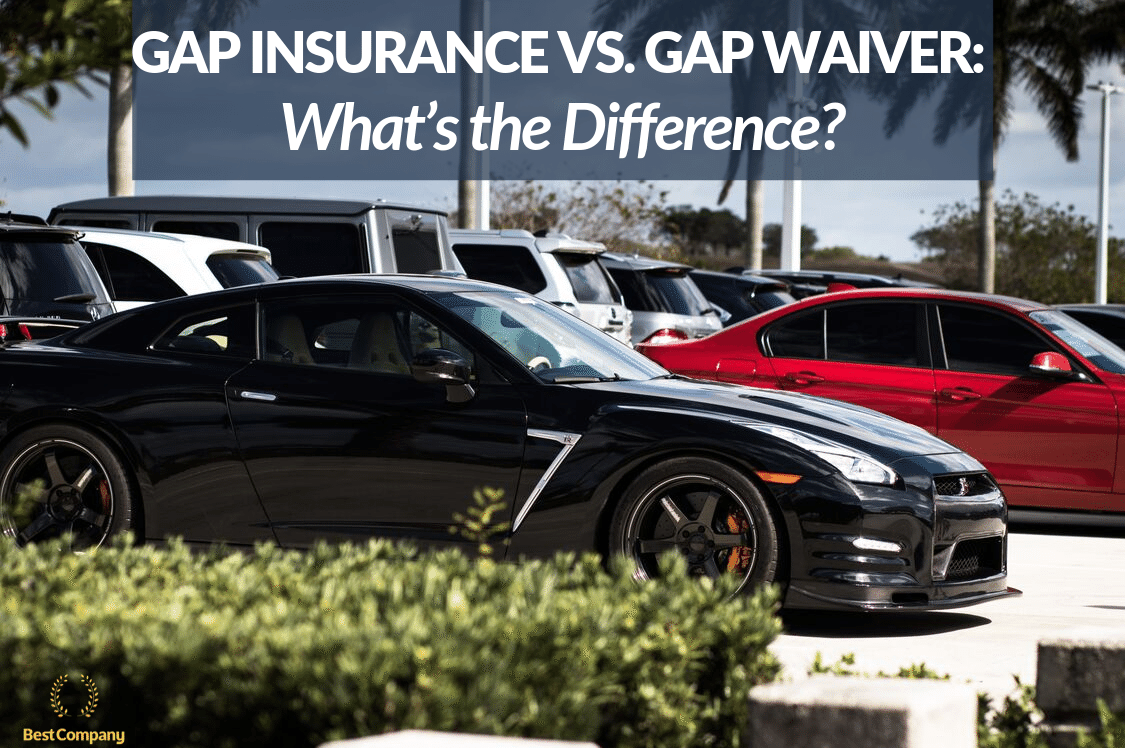GAP Insurance vs. GAP Waiver: What’s the Difference?

When it comes to GAP insurance, and a GAP waiver, many Americans are confused about the difference between these two products. Which one do they need, if they need one at all, and what is best for their purchase?
Let’s start with what they have in common:
GAP stands for Guaranteed Asset Protection.
This type of policy basically helps car buyers to avoid having to keep making monthly car payments on their car, in the event that it is stolen or totaled. No one wants to be paying on a car that they don’t even have anymore. GAP coverage pays the difference between what your regular car insurance policy provides and your remaining loan balance.
Although the terms are often used interchangeably in the auto industry, we got some help from auto finance experts to break down the difference between a GAP waiver and GAP insurance. Here’s what they said:
GAP options: waiver or insurance
"Most consumers don’t realize that there are options," says Danielle M. Diodato, Esq., Associate General Counsel at Dealer Owned Warranty Company (DOWC®) in Ringwood, NJ. "There is not a lot of functional difference between GAP insurance and GAP waivers, but there is a difference in how a car buyer can obtain each of them."
GAP waiver basics
"GAP waiver and GAP insurance aren’t actually the same thing, and most car buyers get GAP waiver," Sonia Steinway, CEO of Outside Financial.
"A car buyer’s first line of defense, or first opportunity to secure any kind of Guaranteed Asset Protection (GAP), is actually during the purchase or lease of the vehicle, in the form of a GAP waiver," says Diodato. "Since a GAP waiver is negotiable directly with the dealership, it may be cheaper than obtaining GAP insurance. And the cost is rolled into the car payment over the life of the loan."
"Waivers aren’t legally considered insurance," explains Steinway, "which means they don’t have to be regulated as insurance products. Other companies (like many auto lenders) can sell GAP waiver without having to get that license. The creditor agrees to waive any ‘gap’ between what you owe on your loan and the value of the vehicle if it's totaled or stolen."
"Since GAP waivers are between the lien holder or creditor and the consumer — where the consumer obligation would be waived for the GAP amount by the creditor in the event of an accident — there is no insurance company involved, so GAP waivers are not subjected to insurance regulations," Diodato explains.
GAP insurance basics
"While a consumer can shop around for GAP insurance following the purchase of a vehicle," Diodato continues, "it is regulated by the state in which you are doing business, like any other form of insurance. And, consumers should expect that their insurance premium will increase following a GAP insurance claim."
"In most states," says Steinway, "insurance companies have to comply with very strict regulations, including having rates pre-approved by the state insurance department, and get licensed as insurance providers. Only an insurance provider that has the appropriate license (and is regulated by the state's insurance department) can sell GAP insurance."
"Also," warns Diodato, "GAP ‘insurance’ does not carry from one insurance company to another, and consumers can sometimes forget to add that coverage back in if they wind up switching insurance companies for one reason or another."
On the other hand, she explains, "A GAP waiver stays with the loan until maturity," so this won’t be an issue."
Questions to ask when you buy GAP coverage
"Wherever you buy GAP," Steinway advises that you "make sure you ask the salesperson the following questions:
- Does the policy include the deductible on your collision or theft insurance?
- Does it include any negative equity or rollover balance from a previous loan?
- Does it exclude cars that are uninsured or underinsured?
- Does it cover interest and fees that build up starting when your car is stolen or totaled until the insurance payment is made?
- Does it include any obligation you may have for window etching or other add on products?"
Asking these questions should help you ensure they know exactly what the insurance policy or waiver covers. You want to know exactly what it covers, and for what price, to make sure that you are getting the right coverage for your new car, whether you buy or lease.
Special thanks to our experts:
Danielle M. Diodato, Esq., is Associate General Counsel at DOWC in Ringwood, New Jersey. DOWC® is among the fastest growing service contract providers and administrators in the United States. DOWC® offers customizable F&I products, expertise in compliance, and a full suite of technology designed to optimize productivity and expedite claims adjustments, processing, and reporting.
Sonia Steinway is Co-founder and CEO of Outside Financial, an online car lending platform that offers education to empower shoppers and the ability to prequalify for finance through a variety of lending companies, outside of a car dealership. Applicants are matched to lenders after filling out a quick application.
The Top Car Loans Companies



The Top Car Loans Companies



Get Our Newsletter - Be in the Know
Sign up below to receive a monthly newsletter containing relevant news, resources and expert tips on Car Loans and other products and services.
We promise not to spam you. Unsubscribe at any time. Privacy Policy